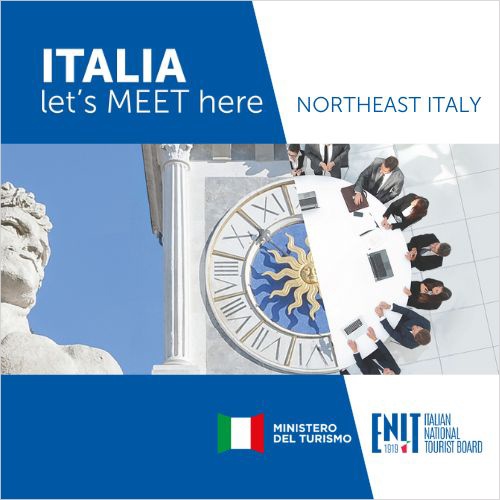From my experience organizing business events in Canada and abroad, I have identified several program components that are often overlooked and can have a significant impact on a program’s bottom line.
1. EMERGENCY PREPAREDNESS
Disruption is the new normal and travel throughout the world is now more uncertain than ever. Being prepared to manage the “what ifs” is crucial. Do you have an incident command structure in place? What about a risk assessment team?
I recently took an emergency preparedness course. One of my key takeaways was instituting role-playing on a regular basis at internal company meetings. This requires that you have several crisis situations ready to present at meetings. On the spot, your team will have to come up with a solution for the following:
- Assign command structure roles;
- perform a threat and risk assessment;
- break down the emergency preparedness process;
- identify the various stakeholders;
- establish how to manage risk;
- and summarize post-incident reporting, including how lessons learned can be used for further improvement.
Finally, always reserve money in your budget for emergencies and the unexpected. A contingency fee of approximately 5 to 10 per cent should be included for categories such as emergency preparedness, currency fluctuations, f&b increases or costs that aren’t guaranteed at time of budgeting.

2. SAFEGUARDING ATTENDEE DATA
Data security has gone beyond the “clean desk policy” or locks on filing cabinets. The topic of securing data is much more complex and has a significant impact on meetings and events because we need participant data to arrange the event. Whether it’s collecting passport numbers, birthdates, or home addresses, it’s crucial to ensure that information remains safe and is appropriately destroyed following your event.
I recently attended a cybersecurity event hosted by The Globe & Mail newspaper in Toronto. The first important thing I learned is that at a bare minimum, you must ensure that all sensitive information shared with hotels and other suppliers is sent using password encryption.
Secondly, all event professionals, whether corporate, association or independent, should have standard language in their RFPs and service-level agreements with third-party service providers outlining the requirements on how their attendee data will be protected by third-party staff. This must include asking if the third-party supplier’s data privacy protection standards are compliant with the General Data Protection Regulation [GDPR].
The steps you can take to ensure security can be endless, but some helpful hints include:
- Avoid using USB sticks and USB chargers;
- have a separate computer for work purposes and scrub it once in a while, making sure you have a back-up;
- never connect to hotel, restaurant or airport WiFi, which are the honeypots of all honeypots for attacks;
- use different browsers for different purposes (social media, on-line banking, etc.);
- and have malware installed as well as antivirus software.
3. SAFEGUARDING VENDOR DEPOSITS
Advance deposits that you pay for meetings and events are, in fact, unsecured, interest-free loans from your organization to vendors to secure future services. With a few exceptions worldwide, vendors are free to use your deposits for operational cash flow. This represents a financial risk.
Consider keeping the funds in a trust account and coordinating the release of the funds to the vendor at the start of the event with the delivery of services. This avoids financial risk because of business failure, business interruption and other catastrophic events.

4. CURRENCY FLUCTUATIONS
The gap between contract negotiation and final program execution is often a year or more. As a result, fluctuating exchange rates may have a significant financial impact on program budgets. I have been involved with business events in US and European destinations that have experienced significant losses when the value of the Canadian dollar dropped relative to the US dollar and the Euro. In one case, the exchange rate was $1.25 Cdn to $1 US upon initial sale. At time of travel, the exchange rate was $1.40 Cdn to $1 US.
Unexpected losses such as this can be avoided by exchanging the entire program spend at the on-set. Helping your client and you manage international vendor payments is as important as managing the logistical details. Have you considered hedging the funds at the beginning so that payments to suppliers, whenever they might be, can be made from the foreign currency account? This can eliminate anxiety over currency fluctuations and free you to focus on the logistical details of getting the program out the door.
5. CASH ON-SITE
Have you ever had to travel with substantial amounts of cash to pay for vendor tips and other cash expenses such as participant cash allowance for lunches or dine-arounds? I always worry about travelling with significant quantities of cash. What if your cash requirement is over $10,000 and your hotel will not advance you the funds on-site? Take the time to wire the amount you need on-site to your hotel so that they receive the funds in advance of your arrival and have time to get the required denominations for you upon arrival.
6. VAT TAX RECLAIM
Many planners are unaware that Value Added Tax (VAT) paid on hotels, DMC services and other meeting and event components in foreign destinations are often refundable to your organization. VAT rules and regulations on what can be claimed do vary from country to country. However, there are many VAT tax reclaim companies that will look at your program budget and give you an idea of the rebate you can expect before the program travels. You will be surprised—VAT reclaims can often be in the thousands of dollars.

7. VENDOR CONTRACT OPPORTUNITIES
Take the time to carefully read all clauses and inclusions in hotel, DMC or other vendor contracts. Hopefully, you will not have to refer to them, but the unexpected may happen, and you will be thankful that you made it a priority. Here are some suggestions that I recommend: by.
- Don’t announce the destination, hotel or other suppliers to the desired vendor until after the contract is signed. It is much easier to negotiate with a supplier before the contract is signed as opposed to afterwards. Work with someone who has the authority to negotiate.
- Look at the potential risks to your event’s location given the time of year it’s being held. Update your force majeure clause accordingly.
- Have a “hotel or other venue” contract checklist so that you can make sure nothing is overlooked. It is not just the concessions that are important but also clauses that help both parties should something catastrophic happen. Update this list bi-annually or whenever new situations arise.
- Concessions: There are so many opportunities cost the hotel very little but serve as added value to your client or you. If you don’t ask, you won’t be able to take advantage of these opportunities.
- Site Inspection Clause: It’s important to include a condition that the business is contingent upon a site inspection of the hotel (including bedrooms, meeting and function space, common areas, restaurants, etc.) and that the program can be cancelled in its entirety without penalty of any kind pending the site inspection.
- Cancellation by Hotel Clause: This is separate and distinct from the Cancellation by Group clause. In a nutshell, this clause first defines what constitutes a cancellation, i.e. reasons other than Force Majeure, Right to Terminate or Excuse of Performance. It then states clearly that a) the hotel will be liable for all damages allowed by law; b) the hotel will assist in securing alternate facilities; c) the group will provide documentation of actual losses; and d) the hotel will reimburse expenses within 30 days of providing said documentation.
8. EVENT INSURANCE
Unpredictability with respect to travel to other countries is a reality, making event insurance—specifically event cancellation insurance—a must. This has become extremely important to me as an event planner especially with the US administration potentially imposing travel bans and/or revoking visas.
It’s essential to have this insurance, but you must read the fine print and be aware of the inclusions and exclusions. For example, Prolink, a Canadian insurance broker, specializing in business events, has a “Failure to Make Necessary Arrangements” exclusion in its event cancellation policies. [Full disclosure: Prolink is a strategic partner of Meeting Escrow, where I am vice president, operations.] This clause specifically states that the failure to ensure all necessary visas have been confirmed is excluded. Therefore, an inability to attain visas would not be covered. However, circumstances wherein people were granted visas and then something occurred that led to the visas being revoked, would be covered. Similarly, event insurance would cover an unexpected travel ban, or something of the like, that prohibits people from entering a country.
However, in both situations, the event cancellation insurance must be in effect before the travel bans and other directives are put into place.

Liz Holtby is vice president, operations for Meeting Escrow. Over the course of her career, she has held a variety of operations-related positions in the MICE and marketing industries. In addition to her duties at Meeting Escrow, she helps cultivate the next generation of business events industry leaders through teaching positions at Durham and Centennial colleges in Ontario, Canada. She is also a member of the schools’ program advisory committees. Liz is TICO (Travel Industry Council of Ontario) certified and is a member of SITE (Society for Incentive Travel Excellence). She is based in Toronto, Canada. She can be reached at liz.holtby@meetingescrow.com; +1-647-957-2299 (direct).












